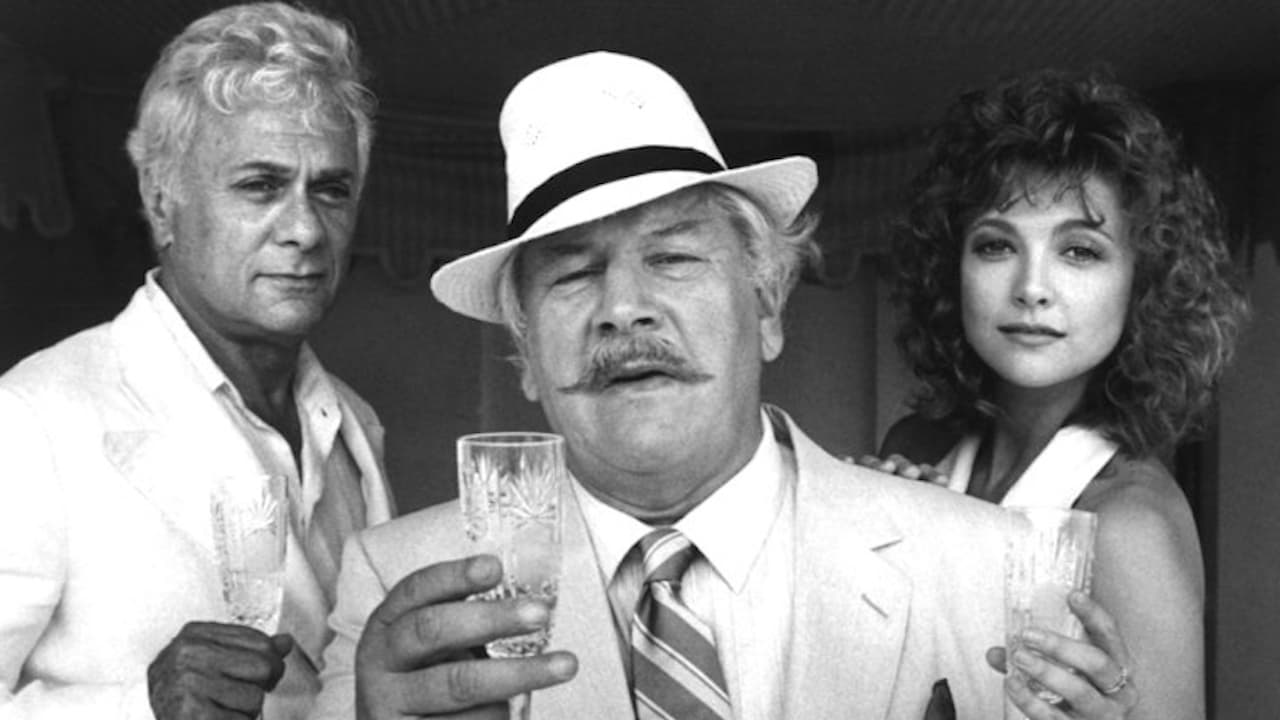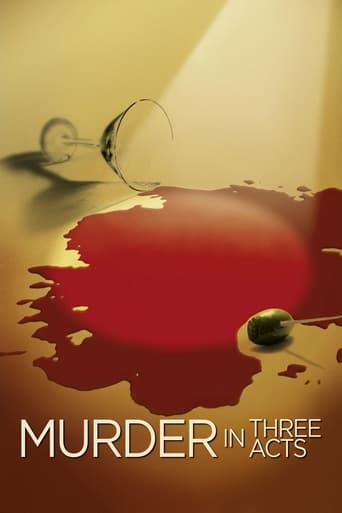



Lack of good storyline.
Crappy film
In other words,this film is a surreal ride.
Great story, amazing characters, superb action, enthralling cinematography. Yes, this is something I am glad I spent money on.
View MoreThis features a top row performance contributed by Tony Curtis, and was the second Poirot movie I found to feature the inner-inner circle of Hollywood big-wigs, and their sycophantic hangers-on. This time in Acapulco, we are given "movie stars, martinis, and murder." I found this highly entertaining, though it was mildly difficult to solve.Breathtaking vistas, another all-star cast, and fine direction by Gary Nelson (Get Smart, Get Smart Again, and Alan Quartermain and the Lost City of Gold, to name but a few), make worthy contributions to this wonderful adaptation of a great Agatha Christie mystery.All in all? This was not rated, but made for television in 1986, so I think I can safely say it is suitable for all audiences. Great Sunday afternoon/rainy day fare.It rates a 6.7/10 from...the Fiend :.
View MoreThis is a fine movie. Watching Peter Ustinov play Poirot is always a treat. The dialogue between him and Hastings provides adequate humor. And the Agatha Christie whodunit puzzle is fairly good.The film suffers though when compared to two previous Ustinov films: "Death On The Nile", and "Evil Under The Sun", both of which were grand and stately big-budget theatrical productions. By contrast, "Murder In Three Acts" is a made-for-TV movie, and therefore seems small and cheap. The scenery, the music, and the casting cannot compete.Further, the suspects in "Murder In Three Acts" seem too "normal"; there are no really eccentric characters. The women especially seem bland and undifferentiated.Still, if you can avoid the temptation to compare this film to other Hercule Poirot films, as well as Christie's source novel, the movie "Murder In Three Acts" is still entertaining.
View MoreI cannot say the same about this film. Poirot dotters about...Hastings is a wimp! Quite frankly, the whole thing put me to sleep. Read the book instead.
View MoreWhere has the elegance of earlier Christie adoptions gone? I watched this movie not long after reading the book which is possibly not one of the greater works of Agatha Christie but its adaption would certainly have deserved a better treatment. Gary Nelson (famous for a number of pretty good TV series) and Scott Swanton made it a true `Three Act Tragedy'.First Tragedy: The Setting The original story is set in England and on the Riviera. It seems that Acapulco was chosen to return to magnificent settings as known from `Death on the Nile' and `Appointment with Death' or `Evil under the Sun'. However this goes wrong in this movie as the locations are nowhere near as picturesque as in those earlier films. Having Cartwright and Poirot flying back to Los Angeles after the first murder make the whole film look really American (which, alas, it is). The Riviera, as in the book, seems to me a much more likely setting for the great retired detective and a knighted actor.Second Tragedy: The People Captain Arthur Hastings (evidently used instead of the character Satterthwaite) has lost his title and obviously moved from Argentine and is surrounded by a lot of Americans. To make Sir Charles Cartwright and American actor takes a lot of character from the original person. There is no real reason for having Dr. Strange changing his his first name from Bartholmew `Tollie' to Wallace and Angela Sutcliffe becoming Stafford in the book. With Captain Freddie and Cynthgia Dacres it seems more obvious to me. Dayton, forgive my being a snob, is certainly more easy a name for Americans. Same with Hermione Lytton Gore and Lady Mary Lytton Gore. They became Jennifer (thank god they kept the `Egg') and Daisy Eastman. They did not only change the names with Oliver Manders Murial Wills / Anthony Astor but also their characters. For Manders was not really the playboy type and Wills was a much sharper yet shy lookingcreature in the book. Ricardo Montoya therefore seems more suitable and Janet Crisp / Martin Bloodall sounds much more sensational. Apart from Hercule Poirot, Reverend and Mrs Babbington as well as Miss Milray seemed the only people who where allowed to be what they are in the original story.Third Tragedy: The Actors To begin with, Sir Peter Ustinov, once a remarkable (if not quite true to the book) Poirot is reduced here to an old man, without any real elegance left (In L.A. we find him lying on a sofa with a cardigan and ruffled hair L ). Jonathan Cecil gives his usually poor and bumbling performance as Hastings and is not even left his title. (Same as in "Thirteen at Dinner" and "Dead Man's Folly") One should have expected somewhat more inspired acting from Tony Curtis. AC's Cartwright was elegant, interesting and cunning actor. He used to change his bearing in different situations. He also was a "young boy" deeply in love with Egg. Tony Curtis reduces him to an aging playboy with a distinct lack of drive. Lee McCain, Emma Samms, Fernando Allende certainly do not appear to be giving all they could and Diana Muldaur, Nicholas Pryor, Lisa Eichhorn and Marian Mercer are a very mediocre supporting cast. Concetta Tomei, an otherwise known theatre actress could have done much better. Dana Elcar, Philip Guilmant and Jacqueline Evans are not worth mentioning (That may partly be due to their short screen time).I have seriously tried to find something positive about this film but I did not quite succeed. What is the point in using the correct card game (`My family') with which Poirot makes houses while he considers the case when nothing else seems to ring true. Where is the point in changing names and places, giving the whole movie an American TV-series look. Why not film it in the old fashioned style? Perhaps Warner Brothers did not consider it necessary to spend more money on AC. If they had they could have made it a success. At least they left the basic storyline unchanged.
View More